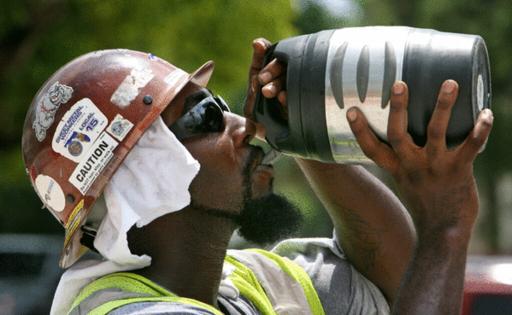Editorial: Florida's heat shouldn't be a workplace killer
Published in Op Eds
Working outdoors in Florida is dangerous, but laborers who do back-breaking work to maintain our homes, businesses and lifestyles deserve basic protections against the brutal heat.
Instead, the state tolerates this silent killer as a price for doing business. The state and federal governments need to enforce reasonable, new safeguards to protect these workers and the vital industries they serve.
Earlier this year, Florida banned local governments from providing increased oversight for workers exposed to high temperatures. Advocates sought protection to better safeguard workers who perform essential services, such as landscaping, farming and construction, in Florida’s searing heat. But lawmakers said businesses and regulators alone could keep laborers safe. It was a cynical dodge to the industries profiting from their employees over-heating on the job.
Indeed, far more workers have died from heat across the state than authorities even know.
An investigation by the Tampa Bay Times’ Hannah Critchfield and Juan Carlos Chavez found at least 37 recorded heat fatalities over the past decade — double the number federal regulators had tallied during the same period.
Employers are supposed to notify the U.S. Occupational Safety and Health Administration, which oversees worker safety, about employee deaths within hours, the Times reported. OSHA has fined six businesses in the state after discovering they didn’t follow the rule when workers died from heat. Yet the Times identified 19 additional heat-related deaths kept from the agency. All told, the Times found that Florida companies have failed to report the vast majority of heat fatalities as required. So much for the industry policing itself.
The Times reviewed thousands of pages of medical examiner records listing heat as a cause of death from 2013 through 2023. The reporters reviewed law enforcement records and interviewed family members, employers, former federal inspectors and witnesses of job-related deaths to piece together the circumstances behind the uncounted cases. Workers died after hot days spent roofing homes, packing boxes and harvesting fruit. The vast majority were people of color; at least half were immigrants.
Florida is one of the nation’s hottest states, and climate change only exacerbates the problem. Indeed, the state requires safeguards like mandated breaks and access to water for high school athletes — and rightly so.
But why isn’t the same consideration given to workers who mow our lawns, clean our pools, roof our homes and stoop over to pick the food we eat? The double standard reflects warped priorities and gross indifference.
According to the National Weather Service, extreme heat is more deadly than any other natural disaster plaguing the U.S., killing more people annually than hurricanes, tornadoes and floods combined.
Florida’s unforgiving heat is a fact of life for outdoor workers. But providing workers with breaks, clean water and other minor comforts is easy. Some accessories (light clothing, hats and cooling neck wraps, for example) that help lower body temperatures can also be cheap and effective.
At the very least, federal regulators need to crack down on employers who fail to comply with reporting heat-related deaths. While OSHA lacks specific heat protections for workers, the agency can impose penalties, but its rules often restrict the agency’s timeline to act.
It also has too few inspectors; roughly 64 inspectors oversee hundreds of thousands of workplaces in Florida alone, federal records show. If the federal government wants employers to prioritize heat-related safety, it needs first to set a better example.
_____
©2024 Tampa Bay Times. Visit tampabay.com. Distributed by Tribune Content Agency, LLC.




























































Comments